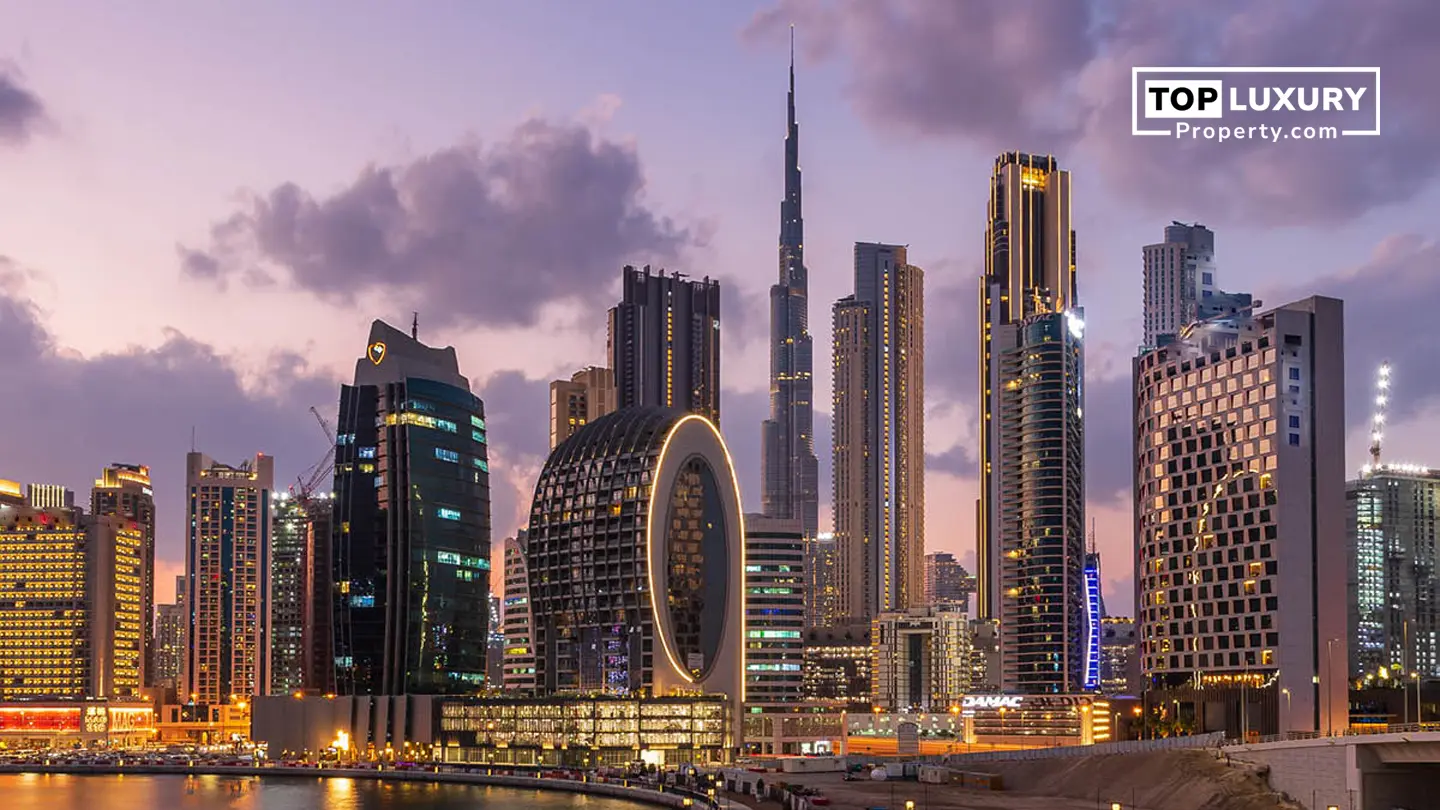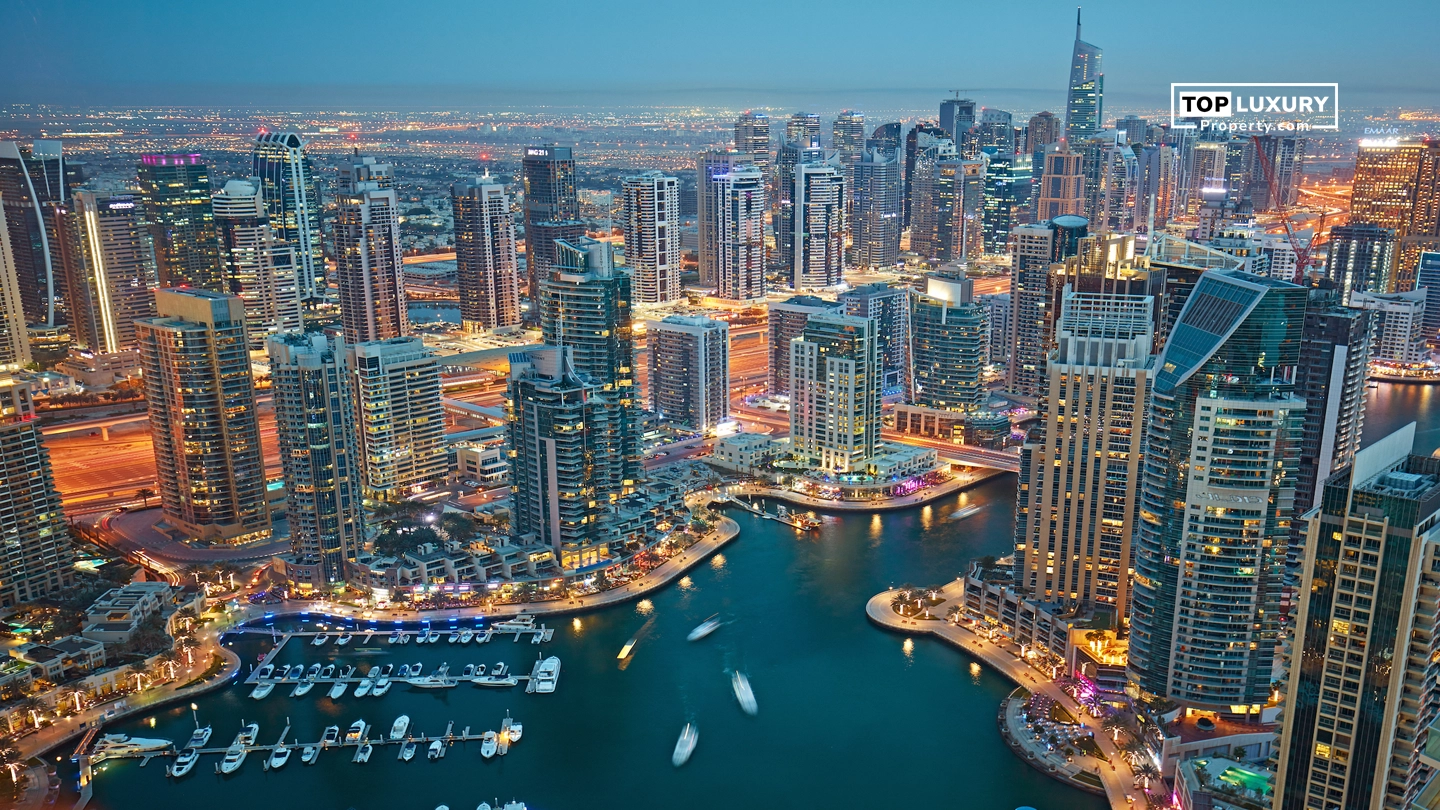Guide To The Home Buying Process
Buying real estate in Dubai requires a clear plan. And if you are looking for an in-depth guide that covers every page of property purchase, then this guide offers you a detailed insight into the Dubai property market. It covers the Dubai home buying process from start to finish.
As we already said, you need a clear plan with it, and you also need a balance between expectation and finances. So, before buying property in Dubai, it’s important to know what to expect, as it offers great opportunities. With this detailed guide and a mix of local knowledge, you can surely ace your investment journey.
Without further wasting time, let’s see the key tips you should remember while investing in Dubai real estate.
Understanding Dubai’s Real Estate Market
Before investing in any property market, we need a solid grasp of it. As we are going to invest in Dubai, we need to understand it. You can view our previous guide on Dubai Last 10 Years price trend, but here, we are focusing on the recent performance of Dubai real estate, which means H1 2025.
Market Size & Momentum
In H1 2025, The Dubai property market saw its highest sales ever: 125,538 transactions worth AED 431 billion. This is a 39% increase in value and 26% in volume from last year.
In the affordable segment, property prices in Dubai rose by up to 17% in H1 2024.
Mid-tier properties saw price increases ranging from 5% to 16%.
The average sales price per square foot for luxury properties surged by up to 15%.
Nearly 95,000 investors completed over 118,000 transactions in this time period. You will be amazed to know that out of these, 59,075 were new investors. This shows how people are rushing to Dubai for investment.
Price Trends & Rental Growth
Prices in Dubai are rising steadily. In 2024, sales prices went up 20% (average AED 1,597 per sqft). Rental growth was 19%, with villas seeing higher gains. By March 2025, the average price per square foot reached AED 1,750. Apartments averaged AED 1.3M, and villas AED 3.4M. Dubai offers attractive rental yields, averaging around 7%. This is higher than in New York or London. This makes Dubai a great choice for income-focused investors.
Supply Pipeline & Imbalance
Despite the construction boom, there’s a supply-demand imbalance. Knight Frank forecasts only 19,700 new villas by the end of 2025. Demand for family homes is surging. As per Dubai’s Housing Strategy, with an ambition of serving both the 1% and the 99%, the total new housing is projected to hit 300,000 units by 2028, which includes 80% apartments and just 17% villas. With a growing population, demand for homes is strong; in short, this imbalance presents both opportunities and challenges for investors.
Economic Drivers & Policy Support
Your investment is backed by strong economic fundamentals and supportive government policies. Do you know the real estate sector contributed 7.8% to the UAE non-oil sector GDP? The economy is diversifying beyond oil.
Key drivers of the Dubai property market include:
Zero taxes on property and income
Visa reforms (including the Golden Visa for AED 2M investment)
100% foreign ownership policies
Smart city infrastructure development
Robust tourism growth
When you compare short-term rental vs long-term rental in Dubai, you can see that short-term rental demand has soared (18% surge in Q1 2025). According to Frank Porter’s data, short-term rentals start from as low as Dh200 per night and can cost a maximum of Dh100,000 and more. This is thanks to 18.7 million visitors in 2024. Platforms like Airbnb are thriving, providing flexible income options.
Key Factors to Consider Before Buying
Now, we are moving to the key factors that you definitely need to check out before buying any property.
Freehold Areas & Ownership Zones
Article 3 of Regulation No. 3 of 2006 Determining Areas for Ownership by Non-Nationals of Real Property in the Emirate of Dubai (pages 129-132) indicates the land plots designated as freehold properties. This means when buying real estate in Dubai, you can only buy in freehold zones. These include Downtown Dubai, Dubai Marina, JVC, Business Bay, Palm Jumeirah, and Dubai Hills Estate. Make sure the developer and project are registered with RERA before buying.
This rule protects your property rights under UAE law. As a foreigner, these zones are the only places where you can own property fully. Choosing the right location is key in your buying journey.
Price per Square Foot & Unit Types
Prices vary a lot in Dubai. Downtown Dubai and Dubai Marina are most expensive, with prices around AED 1,600–2,500 per square foot. If you have a smaller budget, JVC and Dubai South are affordable with prices from AED 800–1,400 per square foot.
Villas and luxury plots cost even more. Some plots in Emirates Hills can go for AED 4,500–5,000+ per square foot. Your budget should reflect these differences to get the best value.
Total Cost Fees
Knowing the total cost is important for planning. You’ll need to pay for more than just the purchase price:
DLD transfer fee: 4% of sale price
Title deed and trustee fees: about AED 4,580 + VAT
Agent commission: 2–5% + 5% VAT
Legal fees: 0.5–1% of purchase price
Valuation fees: AED 500–2,000
Service charges: AED 27/sqft annually
Housing fee: 5% of average annual rent
These hidden costs can increase your investment by 7-10%. Include them in your budget to avoid surprises during the buying house process in Dubai. You can check out our detailed guide on the cost of living in Dubai , which helps you calculate your monthly expenses.
Mortgage & Financing Rules
Financing your purchase has its own rules. Non-resident buyers can get loans for 40–70% of the property value. Residents can get up to 80%. Interest rates are between 3.5–6%, depending on the loan.
Most banks want a 30–40% down payment. For investment properties, this can be higher. You’ll need your passport, income proof, bank statements, and Emirates ID if you’re a resident. Make sure the project has RERA escrow backing for off-plan purchases.
Legal & Financial Requirements
You need to meet certain legal requirements when buying property in the UAE. These rules ensure a smooth and lawful transaction.
Here are the key legal requirements to buy property in Dubai
First, you must be at least 21 years old to buy a property. This rule is for both UAE nationals and foreigners.
You’ll need valid identification. If you’re not a resident, bring your passport and UAE visa. UAE residents should have their Emirates ID card. Spending AED 750,000 can get you a 2-year investor visa. AED 2 million gets you the Golden Visa.
Foreigners can buy property in freehold zones. These areas let non-UAE nationals own real estate.
4. You might need a No Objection Certificate (NOC) from your employer. This shows you have permission to buy property in the UAE.
You’ll also need proof of funds. This could be bank statements or a loan pre-approval letter. It proves you can afford the property.
The property must be registered with the Dubai Land Department. This makes your ownership official and legal.
Lastly, you’ll pay various fees. These include a 4% transfer fee to the Dubai Land Department and registration fees based on the property value.
Escrow Protection
RERA’s rules protect your investment. They use escrow accounts for off-plan deposits. This way, your money goes only to the project you’re investing in. All real estate agents need RERA licenses. Developers must meet their deadlines. If they don’t, you might get refunds or compensation. This makes buying real estate in Dubai safer than in many other places.
Choosing the Right Property Type & Location
The next step is choosing the right location in Dubai, but most importantly to choose among the property types.
Best Neighborhoods by Investor Profile
Your neighborhood choice should fit your investment goals and budget. Dubai has many areas for different budgets and yields:
| Area Type | Key Communities | Best For |
|---|---|---|
| Luxury & High‑Demand Corridors | Palm Jumeirah, Downtown Dubai, Business Bay, Dubai Marina | Long‑term capital appreciation; luxury/resale investors |
| Mid‑Range High‑Yield Spots | Jumeirah Village Circle (JVC), Business Bay, Dubai Marina, Dubai Hills Estate | Balanced growth + rental income; ideal for mid‑tier investors |
| Emerging / Off‑Plan / Upcoming | Meydan (including Meydan One), Expo City spill‑over, Damac Lagoons | Value-based investing, growth potential, longer‑term horizon |
| Family‑Oriented Gated Villa Communities | Arabian Ranches, Emirates Hills, Jumeirah Golf Estates, Al Furjan, Dubai Hills (villas) | Capital appreciation over rent; ideal for families or prestige investors |
Choose based on location prestige, accessibility, amenities, and future plans. This will help maximize rental income and capital appreciation.
Infrastructure, Connectivity & Schools
Being close to important places like metro stations and schools can really boost property value. Areas near Downtown, Marina, and Business Bay are in high demand. They offer great rental income and keep property values high.
Places with top international schools, like Jumeirah and Arabian Ranches, are very attractive. They draw families willing to pay more rent. Knowing the right neighborhood is key to a good investment.
Strategies for Negotiating the Best Deal
Now, explore some key strategies for negotiating the best deal
Market Research
Get the latest market data before you make an offer. In Q2 2025, the average price per square foot was AED 1,607. The average unit price was AED 1.63 million. Use these numbers to compare when looking at properties in the Dubai property market. Look at recent sales in your area to negotiate better. Developers and agents keep records of past deals. This knowledge helps you negotiate from a strong position.
Leverage Payment Plans & Timing
The market now offers flexible payment plans. For example, Danube has a “1% monthly plan” that requires only 20% down. Knowing about these plans can help you save money. With so many new units coming, you have a lot of power to get a good deal. Units near completion or in less popular areas are great for negotiating. This situation can lead to better payment terms and lower prices.
Work Only with Licensed Professionals
Buying property without an agent can be risky. Always work with RERA-licensed agents and get clear agreements. Before paying any money or signing anything, talk to a property lawyer who knows Dubai laws.
Check all fees and maintenance costs carefully. These can affect your costs over time. Make sure you understand them before you buy.
Negotiating Additional Concessions
Don’t just focus on the price. Ask for extras like:
Waived service charges for the first year
Flexible upgrades to finishes or appliances
Earlier completion dates
Furnishing packages or credits
Some developers offer payment plans after the property is handed over. These plans can help your cash flow and investment returns, even for off-plan purchases.
Future Trends & Investment Opportunities
Supply & Price Forecasts
The market is doing well now, but watch out for challenges ahead. Fitch predicts a 15% price drop in late 2025 and 2026 due to too many new units. But prime areas might not see as big a drop. For long-term investors, Deloitte says demand will stay strong. Rental yields will be around 6–7%, and prices will rise slightly. Knowing these trends can help you time your investments better.
Policy Changes Boost Business Ownership
New rules let companies in free zones buy property. This opens up new chances for corporate buyers and business owners. It could also keep prices stable in certain areas. This change is great for international investors in Dubai’s free zones. It lets them combine their business and property investments. This could lead to tax savings and better operations.
Trends in Sustainability
Properties with sustainability features will soon impact your home’s value. In Q1 2025, 35% of deals were for eco-friendly homes with smart tech. These include solar panels, digital services, and energy-saving systems. New tech is changing how we buy homes. VR tours, AI tools, and blockchain contracts are now common. They make buying a home in Dubai easier and more transparent for those who can’t visit in person.
Segment Shifts
Developers are focusing on mid-income buyers in places like Dubai Sports City. They offer affordable homes starting at AED 600K with good returns. This is great for first-time investors in the Dubai property market.
But, luxury homes in Emirates Hills and Palm Jumeirah are also in demand. Villa prices have gone up 20% in a year. This shows there are chances for investors at all levels.
Conclusion
We hope this guide has given you the latest on the Dubai property market. You now know how to invest in Dubai with confidence. From understanding trends to choosing the right area, you’re ready to invest wisely. Your success in Dubai depends on research, advice, and clear goals. Follow this guide to navigate the Dubai home buying process. You’ll be on your way to achieving your real estate dreams in this vibrant city.






